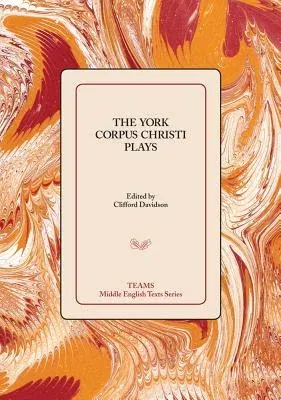York Corpus Christi Plays PBPaperback, 1 October 2011

Qty
1
Turbo
Ships in 2 - 3 days
In Stock
Free Delivery
Cash on Delivery
15 Days
Free Returns
Secure Checkout

Print Length
614 pages
Language
English
Publisher
Medieval Institute Publications
Date Published
1 Oct 2011
ISBN-10
1580441629
ISBN-13
9781580441629
Description
Product Details
Book Format:
Paperback
Country of Origin:
GB
Date Published:
1 October 2011
Dimensions:
25.65 x
17.78 x
3.81 cm
ISBN-10:
1580441629
ISBN-13:
9781580441629
Language:
English
Location:
Kalamazoo
Pages:
614
Publisher:
Weight:
1301.81 gm